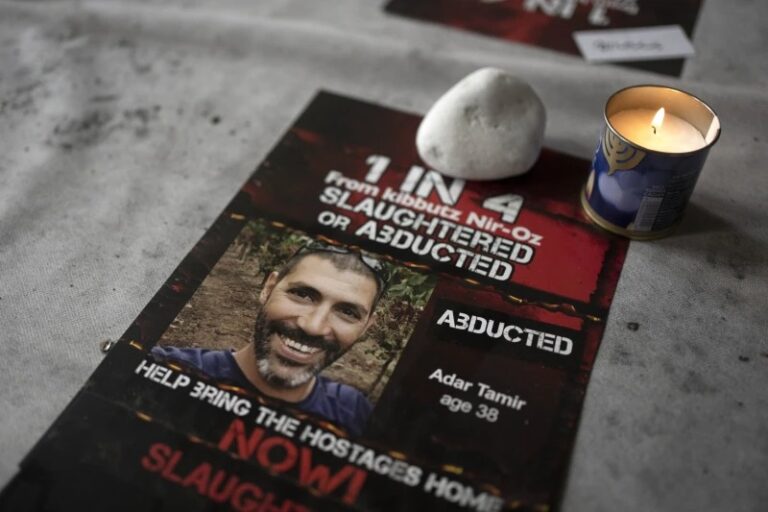 A federal appeals court Tuesday overturned some of the most sensational convictions that sent former Illinois Gov. Rod Blagojevich off to a lengthy stint in prison, ruling that the Democrat did not break the law when he sought to secure a Cabinet position in President Barack Obama’s administration in exchange for appointing an Obama adviser to the president’s former U.S. Senate seat.
A federal appeals court Tuesday overturned some of the most sensational convictions that sent former Illinois Gov. Rod Blagojevich off to a lengthy stint in prison, ruling that the Democrat did not break the law when he sought to secure a Cabinet position in President Barack Obama’s administration in exchange for appointing an Obama adviser to the president’s former U.S. Senate seat.
The 7th U.S. Circuit Court of Appeals in Chicago also ordered the resentencing of Blagojevich, offering the 58-year-old a ray of hope that he could end up serving less than his original 14-year term.
The three appellate judges dismissed five of 18 corruption counts against Blagojevich, while affirming 13 counts. In a blow to the defense, the panelists also suggested the original sentence wasn’t necessarily extreme, even when factoring in the newly tossed convictions.
Speaking outside the Blagojevich family home in Chicago, his wife, Patti, told reporters her husband had expressed disappointment the court didn’t hand him a clear legal victory.
“He’s disappointed, of course,” she said, the couple’s 18-year-old daughter at her side. She added more optimistically, “Possibly this is a step in the right direction of getting Rod home to his family.”
Several onlookers stood nearby, including a small child holding up a sign that read, “Free Blagojevich.”
The court’s unanimous ruling addressed a key question: Where is the line between legal and illegal political wheeling and dealing? The panel’s answer: When it came to Blagojevich’s attempt to land a Cabinet seat, he did not cross the line. His attempts to trade the Senate seat for campaign cash, however, were illegal, the court concluded.
Blagojevich floated the idea of a Cabinet job in exchange for appointing Obama adviser Valerie Jarrett to Obama’s vacant Senate seat. After Blagojevich’s arrest, the seat went to Roland Burris, who served less than two years before a successor was elected.
In its ruling, the appeals court pointed to allegations that President Dwight Eisenhower named Earl Warren to the U.S. Supreme Court after Warren offered Eisenhower key political support during the 1952 campaign. The judges said that under the logic used to charge Blagojevich, Eisenhower and Warren might have been convicted.
“If the prosecutor is right, and a swap of political favors involving a job for one of the politicians is a felony, then … both the President of the United States and the Chief Justice of the United States should have gone to prison,” the ruling says.
Still, the ruling was by no means a resounding win for Blagojevich.
The appellate judges upheld allegations that he sought to sell the Senate seat, saying the evidence against him was strong. Blagojevich had argued he didn’t break the law because he never stated explicitly that he was willing to trade an appointment for campaign cash. The panel balked at the notion that crimes are crimes only if they are overtly stated.
“Few politicians say, on or off the record, ‘I will exchange official act X for payment Y,'” the opinion says. “Similarly persons who conspire to rob banks or distribute drugs do not propose or sign contracts in the statutory language.”
Defense attorney Leonard Goodman sharply criticized the court for not quashing more counts. He said he would urge his client to challenge the panel’s finding, possibly by asking the full appeals court to rehear the case.
“My advice to him is that we fight on,” he said. “It is not justice in my view.”
As for prosecutors, they could choose to retry Blagojevich on the dropped counts, though prosecutors often decline to retry a case if most counts are upheld. A spokesman for the U.S. attorney’s office declined to comment on the ruling.
The two-term governor proclaimed his innocence for years — on television and on the stand at his decisive retrial in 2011, where a sometimes-tearful Blagojevich said he was a flawed man but no criminal.
Eleven of the counts jurors convicted him on dealt with allegations that he tried to swap an appointment to the Senate seat for campaign cash or a job. Other pay-to-play schemes he was convicted of included the attempted shakedown of the Children’s Memorial Hospital in Chicago for a campaign contribution.
After his December 2008 arrest, Blagojevich became the butt of jokes on late-night TV, including for his well-coiffed hair and his foul-mouthed rants on FBI wiretaps. The most notorious excerpt was one where he crows about the Senate seat: “I’ve got this thing and it’s f—— golden. And I’m just not giving it up for f—— nothing.”
Blagojevich began serving his sentence at a prison near Denver on March 15, 2012, and has served more than three years so far. Before the appeal, his estimated release date was 2024; he would be 67.
(AP)






3 Responses
the corrupt state called chiccago. government leaders, courts, black or white, pple or rabbis….
14 years for a stupid deal, this country justice system is corrupt!!!
What a waste of tax $$$$!$!
y2r I think he should have gotten more for sheer arrogance. Auctioning off a Senate seat to the highest bidder is not a “Stupid deal” it’s a crime. And after the 14 years he should stay in jail until he can get it through his head that what he did was indeed a crime.